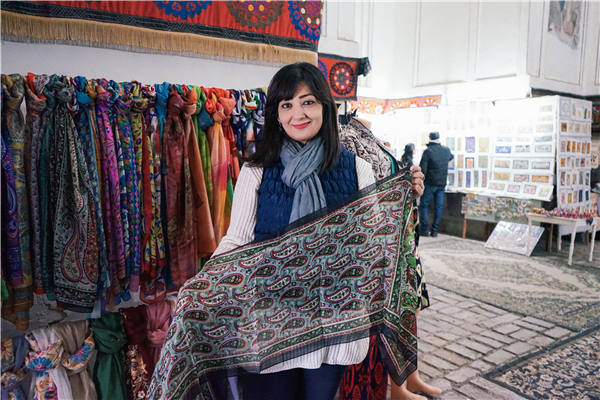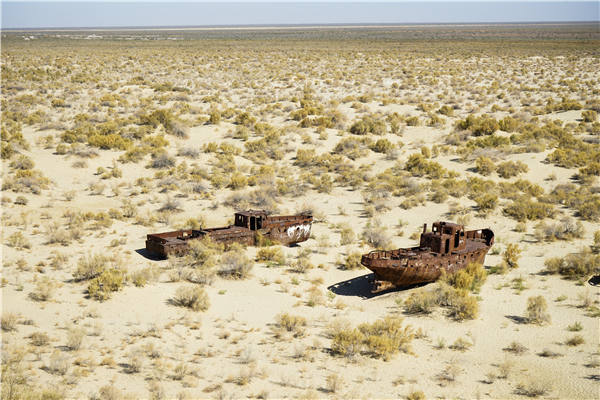

The starting point
Born and raised in Beijing, Liu always aspired to become a writer. He attended top schools and his early life was uneventful.
"Limited life experience provides little writing material for fiction. I only published one story," Liu says.
As a result, after graduating from Peking University, Liu chose to become a journalist at a reputed weekly publication in China as a starting point for his writing career, which saw him work for a number of other media outlets in the following years.
"Working in the media helped to build up my capability to ask questions during my journeys," he says.
In the summer of 2010, he went on a business trip to Horgos in the Xinjiang Uygur autonomous region, a border city neighboring Kazakhstan. At the border he saw trucks waiting in long lines to pass and the majestic snowcapped Tianshan Mountains looming in the distance. He had an impulse to see the world beyond the borderline.
In 2011, he made his first trip to Central Asia. His destination was Uzbekistan. After returning, Liu started learning Russian and Uzbek to better understand the countries there. However, he did not get the chance to return until 2018.
Compared with the previous books about his trips to Central Europe and Southeast Asia and South Asia, in Among the Stans, he largely cut down content about history, but increased his observation on local life, especially his interactions with local people.
"Instead of personal feelings, this time I explored those countries consciously with questions that I hoped I could answer when the trips ended," he says.
"I wanted to foretell the future of those countries based on my understanding of their history, culture and society, especially after communicating with young people," he says.
Before and during his travel, Liu does a lot of research about the destination. What matters more is that he uses his journalistic instinct to look for interesting people "whose stories can reflect important perspectives of the country".
"I would talk to them and quickly be able to tell whether they were what I was looking for," he says.

As well as encountering people randomly while on the road, he would often search local social media platforms, including local dating apps.
"In these conservative Central Asian countries it is interesting to observe how young people decorate themselves, what clothes they wear and the backdrops they choose for their photos. These things provide a lot of information," he says.
"For instance, what defines their perception of beauty? Where did they take the photos? In a traditional teahouse or in a Western-style restaurant? I would find that, in those conservative societies, young people are rather open," he says.
"By viewing enough photos online, I would be able to form a basic judgment of young people in that place and a basic prediction of the country's future in five to 10 years," he adds.